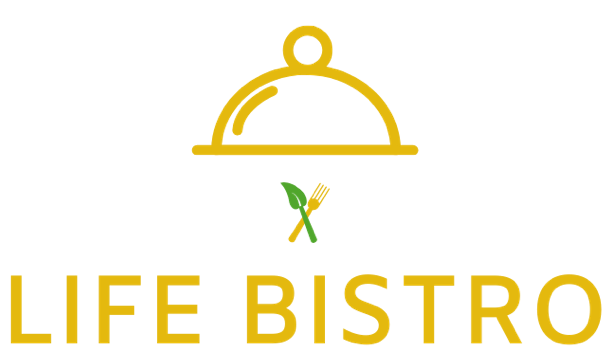Veganism has slowly trickled into the limelight in the recent years. This has become prevalent in social media, especially as more people are becoming hyperaware of their diet, what they are putting into their bodies, and by extension, how it impacts the larger scale of things.
In many ways, the rise of veganism has been an eye-opening event for numerous individuals around the world, what with its call to decrease environmental footprint and generally improved health. As a matter of fact, in attempts to eat healthier and start the year right, social media users rallied to Instagram to use the hashtag #Veganuary.
The popularity of veganism has undoubtedly made waves throughout the globe, making it resonate with tons of people wherever they might be. Because of this, it makes sense that many individuals are switching to a plant-based diet. However, turning towards this lifestyle and making it their own can be quite challenging, particularly for those who are just starting out with veganism.
Here, we will talk about what veganism is, what its implications are, and how to properly dive into this lifestyle.
What It Means to Be a Vegan

Veganism is defined as a lifestyle that consists mainly of eating plant-based food. It is a practice that banks on eating a diet based on plants and avoiding animal products at all costs, including meat, dairy, eggs, and honey.
This practice mainly has its roots in animal concerns and welfare, what with animals being exploited for human consumption, thus the deviation from the use of any animal-based products, including food, clothing, and any other purpose these might serve.
Apart from this, veganism also owes much of its roots to the environmental concerns and impact that animal-based consumption has on the planet. Many people have emphasized not only how veganism greatly improves one’s health, but also how it can lower the carbon footprint and emissions by as much as 73 percent.
Of course, it goes without saying that adopting a vegan diet can create holistic changes. Apart from giving individuals the opportunity to be more mindful with what they eat, it also promotes a healthy level of weight loss, as well as a more controlled blood sugar level. It also lowers the risk of heart disease.
Learning How to Make the Switch
With its array of health and environmental benefits, making the switch seems more than inviting to some. Going on a vegan lifestyle without much knowledge can be quite overwhelming.
To carefully adjust to a vegan lifestyle and to be able to stick with this until the very end, starting slow and small is the best way to go. Individuals who are venturing into this practice can start by removing certain foods from their diet and working their way from there.
Keep in mind that a gradual switch is much better than a drastic one to give your body some time to adjust to the change. Moreover, it helps you build a better mindset over time as you go through the journey toward self-improvement. After all, this requires dedication and commitment, rather than going cold turkey.
For those who are still on the fence about switching to a vegan lifestyle, switching to plant-based alternatives to meat, such as Impossible Meat and others like it, will ease consumers into the practice. By taking old dishes that people are familiar with and taking on a plant-based approach, it can erase the notion that vegan food can be intimidating.
Going into this practice requires tons of research. Reading up on various labels and checking ingredients every so often is ideal to ensure that vegans are sticking to their diet. Many of what goes into food are also highly processed, making these alternatives quite unhealthy even if they are vegan, so individuals need to gauge what nutritional value they can gain from the choices they make.

Adopting a vegan lifestyle does not have to mean foregoing delectable food. As a matter of fact, the market is now saturated with all types of snacks and products that are still fun and healthy at the same time. From kale chips, dairy-free milk to vegan ice cream, there is certainly something for everyone on the planet.
Vegan restaurants are also now popping up everywhere, so giving these foods served under this diet is worth giving a go, if only for newbies to dip their toes into and have a gauge of what the practice is like. This shows that there is a wide spectrum of vegan options available and that the world is their oyster.
To help you truly commit to this journey, you might want to find a support system. Finding a great support system can help practitioners who are just getting into the diet. It can also further strengthen their resilience and belief in the practice. To do this, people can look for help and guidance from seasoned professionals and practitioners on the web, social media, and even through their local communities.
What to Expect During Your Journey
The first few weeks on a vegan diet will allow practitioners to see a boost in energy, especially after seeing the removal of processed food and meat. This can be owed to the increased intake of fruits, vegetables, and even nuts, allowing the body to take in more minerals, nutrients, and fiber.
Over the next few days or weeks, however, energy levels can dip and deplete depending on the intake of food, particularly for those who have previously been accustomed to consuming animal foods. Because of this, practitioners of this diet are urged to take vitamin B12 and iron supplements to counter the probable deficiency that a vegan lifestyle could take.
The Takeaway
Transitioning towards a vegan lifestyle takes is more than just an overnight decision. Making the switch is a life-changing move, so taking a kinder approach towards yourself and honoring your journey is vital to the process. In time, even beginners will fall into a rhythm and find the beat of their own drum, making them comfortable in the world of plant-based foods.


